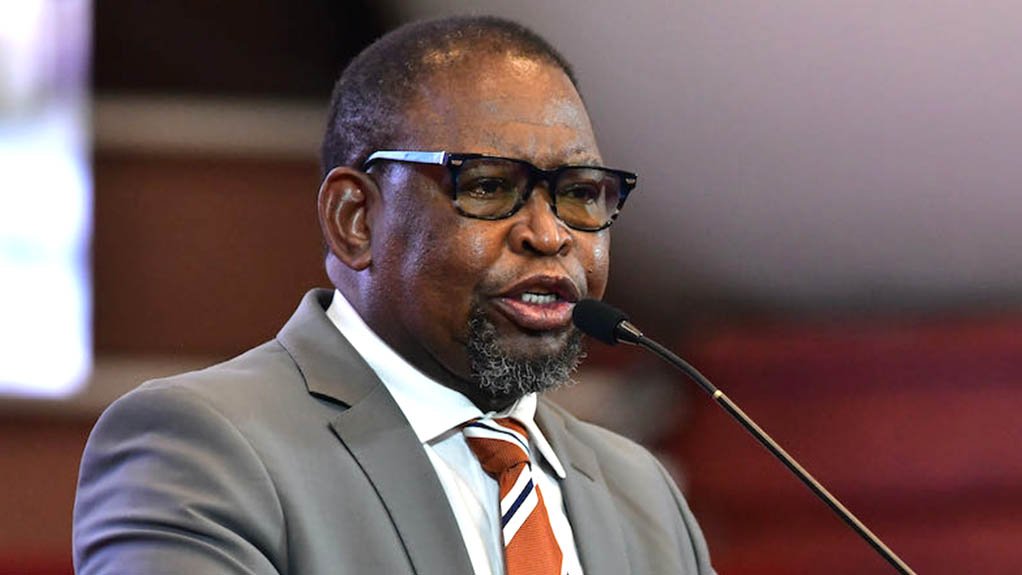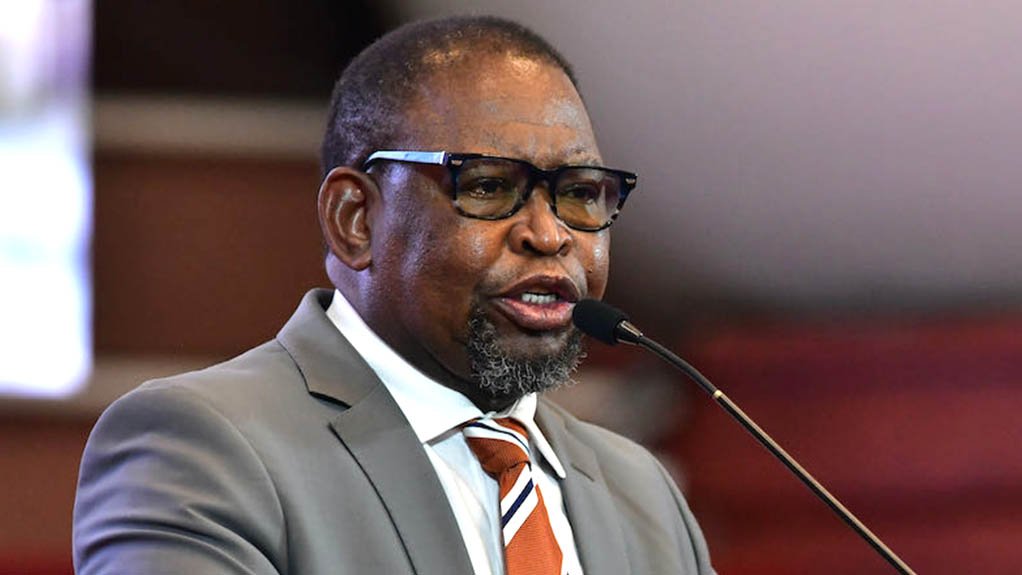- Finance Minister Enoch Godongwana's Medium-Term Budget Policy Statement speech.1.77 MB
Scaling up private-sector participation (PSP) in the delivery of infrastructure emerged as a central component of the “pro-growth agenda” outlined by Finance Minister Enoch Godongwana in his first Medium-Term Budget Policy Statement (MTBPS) since the formation of the Government of National Unity.
Public and private fixed investment levels currently stand at about half of the targeted 30% of gross domestic product (GDP) set in the National Development Plan, and the MTBPS describes the quality of public-sector infrastructure spending as suboptimal and the quantity as inadequate.
“As a result, existing infrastructure is deteriorating, backlogs are growing and the cost of providing infrastructure is high.
“This represents both a challenge and an opportunity,” the MTBPS reads.
While government would restructure the way public infrastructure projects were prepared and financed, Godongwana emphasised the measures being taken to mobilise private resources to augment constrained public capability amid weak growth.
Notwithstanding the 3% growth target set as an aspiration for 2025 by government and business, the National Treasury is forecasting growth of only 1.7% next year, on the back of a forecast of 1.1% for 2024, which represented a downward revision from 1.3% forecast in the February Budget.
Such low growth continues to place strain on the revenue outlook (which was also lowered by R22.3-billion in the MTBPS) and the fiscal balance, which currently reflects a debt burden of R5.26-trillion or 74.1% of GDP, and has resulted in debt-service costs now consuming 21.6% of revenue.
Government had identified higher levels of infrastructure investment as crucial for lifting growth and employment, but was also pursuing a fiscal strategy aimed at narrowing the consolidated Budget deficit from 5% of GDP in 2024/25 to 3.2% in 2027/28, while stabilising debt at 75.5% of GDP in 2025/26.
CREDIT ENHANCEMENT TOOL
The MTBPS, therefore, lists a series of reforms geared towards catalysing greater PSP in infrastructure, including a proposal to launch a credit enhancement instrument to de-risk projects for developers and lenders, while mitigating government’s need to add to contingent liabilities.
The instrument is being developed with the support of the World Bank and is also being canvassed with private reinsurers.
It will initially be used to support independent transmission projects (ITPs), with the lack of electricity grid infrastructure having emerged as a constraint to connecting new renewable-energy plants.
The National Treasury confirmed that a pilot ITP project was being prepared for next year using a build-operate-and-transfer model, but did not provide further specifics regarding the institutional arrangements.
However, ongoing reference was made to the Renewable Energy Independent Power Producer Procurement Programme (REIPPPP) as a “template” for the procurement of public infrastructure.
The REIPPPP projects have been procured through a dedicated structure known as the IPP Office.
It was also confirmed the credit-enhancement vehicle would be operational by the end of 2025 and that the tool would be used as part of the new blended financing risk-sharing platform to help de-risk the ITPs.
The lessons learned from the REIPPPP in unlocking private-sector investment were also being drawn on to increase private participation in transactions in other sectors, notably water and freight logistics, where the credit-enhancement vehicle would be introduced over the medium term.
In water, the private sector could participate through performance-based contracts and public–private partnerships (PPPs).
“Performance-based contracts for the nonrevenue water programme [water leaks] are being fast-tracked in the eThekwini, Tshwane, Nelson Mandela Bay, Buffalo City and Mangaung metros.”
Meanwhile, Transnet and the Passenger Rail Agency of South Africa were finalising a list of priority projects that will be issued to the market in 2025/26.
Government had not set a specific target for PSP-related investment beyond the R943-billion indicated as a figure for public infrastructure for the coming three years in the 2024 Budget Review.
However, director-general Duncan Pieterse said the aim was to embed the private sector into the infrastructure pipeline, including in areas previously dominated by Eskom and Transnet and in areas such as water where there was a need for greater investment.
PPP REFORM
The Minister also said that the reforms to the PPP regulations outlined in the 2024 Budget had been subjected to public consultation and the final amended regulations for entities governed by the Public Finance Management Act would be released before the end of November 2024.
He said it would re-energise the development of a bankable pipeline of transactions and provide opportunities for better private capital mobilisation within a transparent regulated framework.
From the start of the 2025/26 financial year, the National Treasury would also merge the PPP office and Capital Projects Appraisal Unit in the Government Technical Advisory Centre and the capabilities in the Infrastructure Fund located in the Development Bank of Southern Africa.
The National Treasury argued that such consolidation of project preparation and financial structuring functions would strengthen planning and preparation, helping large-scale projects and programmes to reach financial close faster.
In a bid to arrest the decline in electricity, water, sanitation and waste management services, meanwhile, government would create a performance-based conditional grant, triggered by municipalities producing separate financial statements for each trading service and by making the financial relationship between the service and the municipality explicit.
STANDALONE ASSET CLASS
It was also announced that government was considering new long-term financing mechanisms to support infrastructure investment as a standalone asset class.
“These include the creation of a long-term financing instrument without the current market obligation to value assets on a daily basis.
“Also under consideration are changes to the Securitisation Regulations issued under the Banks Act (1990) to allow infrastructure loans to be pooled and traded as asset-backed securities – and for the creation of infrastructure investment trusts, which would derive returns from income-generating infrastructure.
A consultation paper discussing the design of these instruments would be published before the 2025 Budget in February.
It was also announced that government borrowing for infrastructure programmes and capital budgets funded through the Budget would be shown as a defined category of the broader borrowing programme.
“The scope for borrowing will be extended to include infrastructure bonds, bilateral loan financing and concessional funding from international financial institutions, including multilateral development banks.
“Where possible, partners in the Just Energy Transition Investment Plan will be approached for concessional loans for projects with demonstrable climate change co-benefits.”
A request for proposals would be issued before end-November with details for selected projects and programmes that can be financed by interested lenders.
EMAIL THIS ARTICLE SAVE THIS ARTICLE ARTICLE ENQUIRY
To subscribe email subscriptions@creamermedia.co.za or click here
To advertise email advertising@creamermedia.co.za or click here













